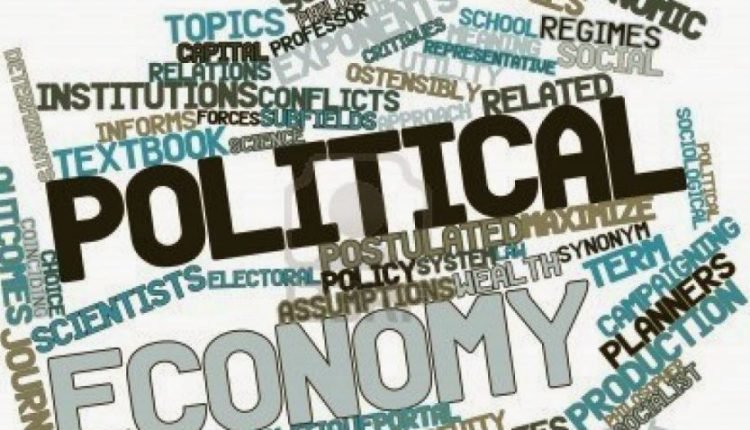Editorial . . . . . . . .
Political economy is the intersection of political and economic power in a society that determines that society’s growth and development potential. Political economy is the study of how the distribution of political and economic power in a society affects the directions and patterns of growth and development, as well as the policies and programmes that affect them. The political economy of a state or country is inextricably tied to economic development. Every country undertakes a series of welfare and development projects in order to improve the economy, the level of living, and the quality of life of its population. In terms of a nation’s growth and development, the influence of the political economy cannot be overlooked. The political economy of a state is the principal character in the entire process of growth and development since it plays the most important role in the functioning of an economy. Even so, it has been observed that the political economy of developing countries in general, and India in particular, has been very unstable for the past several decades or so because the benefits accruing from growth and development activities have failed to produce the desired outcome, and have failed to bring about a positive and desired change in the various aspects of people’s lives, raising questions and concerns about the role and effectiveness of the state. Political economists have been searching for alternate paths to economic development in order to achieve the trickle-down effect (a hypothesis that states that gains for the wealthy trickle down to everyone else). Modern public-private partnership models and structures have arisen as a last alternative for undeveloped or developing economies to retain their political economies. The essence of outstanding interconnection between political economics and economic development is the fulfilment of social and human wellbeing or the maximisation of social gain.
In fact, knowing political economics and economic development is aimed at benefiting citizens, and if neither succeeds in doing so, then such understanding is pointless. Political economy and economic development are inextricably linked and cannot be separated. Only in the presence of a good political economy and a good interface between political economy and economic development can we expect good development results, because a good political economy ensures equal participation of people in decision-making, both political and economic decision-making related to development programmes, which reflects the growth of people’s freedom and choice. As a result, the basic and fundamental approach to bringing a good connection between political economy and economic development has undergone significant changes in recent years, which recognises the importance of political economy in economic development and economic governance, as well as the linkage between political governance and economic development as a key indicator of economic development. It is critical to recognise that a thorough understanding of political economics is a necessary ingredient in the recipe for economic progress. Sound economic policies, strong democratic institutions responsive to people’s demands, and improved infrastructure, all of which are products of an excellent political economy, provide the foundation for sustained economic growth, poverty alleviation, and job creation. And that freedom, peace, security, stability, respect for human rights, including the right to development, the rule of law, gender equality, and market-oriented policies, as well as a general commitment to fair, objective, and democratic societies, can all be attained through the good political economy. A bad political economy, on the other hand, has two outcomes: a bad economy and bad governance/bad polity, both of which distort the route of growth and development and have an uneven impact on the general public, particularly the weaker segments of society. The argument is that developing countries like ours must adopt policies and methods to strengthen the political economy in order to alleviate poverty and increase income, employment, and output.




